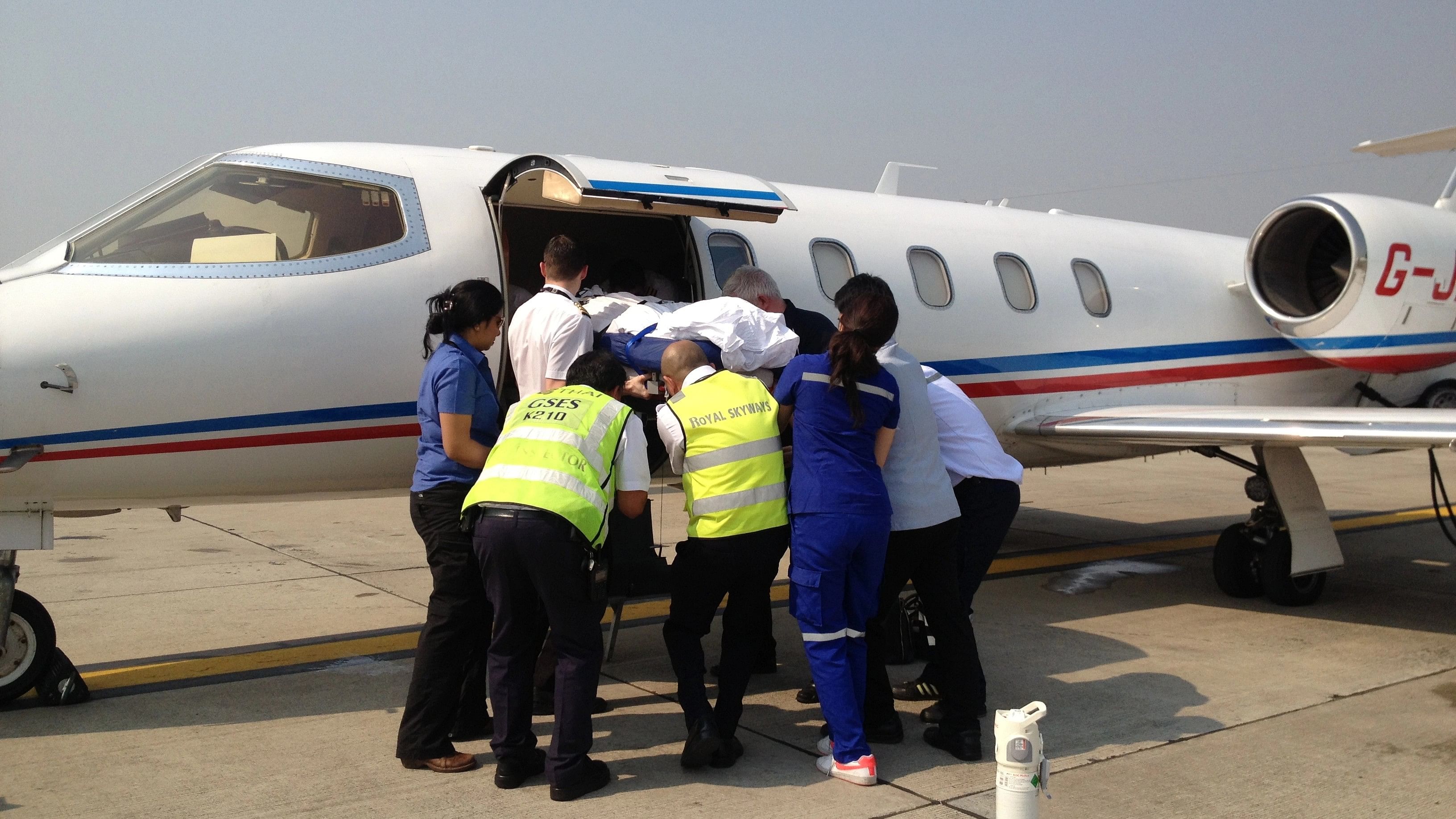
A Bengaluru-based air ambulance service is doing 1-2 domestic patient transfers a day and 3 international trips per week. This is a significant jump from all of 1-2 cases it was fulfilling weekly in 2017, the team says.
Lack of critical care and organ transplant facilities locally, and the need to escalate treatment are driving the demand, says Dr Shalini Nalwad, co-founder and director of ICATT Air Ambulance in Yelahanka. ICATT stands for International Critical Care Air Transfer Team.
An air transfer within Karnataka and to other states in south India costs Rs 4 to 7 lakh one sortie (round trip). The flights operate from commercial airports, and the fee is inclusive of ground ambulance costs to ferry between the airports and destinations.
The fee between Bengaluru and cities up north can come to Rs 8 to 10 lakh. International transfers can go from Rs 25 lakh up to Rs 2.5 crore. A month ago, they airlifted three men from Baku, Azerbaijan, to Bengaluru. It was a road accident case with polytrauma.
Despite the high cost, Dr Shalini claims 80% of their patients are from the middle class.
Facilities on board
The company has access to 15 fixed-wing aircraft and two helicopters to fly a patient, two pilots, and four other individuals (a combination of medical staff and relatives). The aircraft has on board ICU equipment, a neonatal incubator and amenities for ECMO (Extracorporeal Membrane Oxygenation) care. The latter is used to treat patients with life-threatening heart and lung failure.
The team comprises 15 doctors and 15 paramedics, who specialise in neonatal trauma and ECMO care, and organ harvesting. Both Dr Shalini and co-founder Dr Rahul Singh Sardar are trained in anaesthesia, critical care, and aero medical.
ICATT also facilitates patient transfers on commercial planes. On Monday, it flew an elderly man from San Francisco to Bengaluru after he suffered a head injury. The trip cost Rs 35 lakh. Talking about challenges of this mode of operation, Dr Shalini says, “Very few airlines provide oxygen on board and the supply is also limited.”
Response time
ICATT takes about 2 to 6 hours to dispatch a private air ambulance. This time window is used for flight planning, mobilising the crew and patient preparation.
City in focus
When it comes to Bengaluru, 80% of ICATT cases are inbound. Dr Shalini attributes it to the presence of specialised treatments for cancer therapy, organ transplant and ECMO care in the city. Emergence of Chikkamagaluru as a non-transplant organ retrieval centre in the state is also driving organ transfers to Bengaluru via air.
“In 20% cases, patients fly out. Mostly these are people who fall sick after coming to Bengaluru and need to be flown back to their hometown with life support. Or, these are post-surgery patients,” she says.
Companies headquartered outside Karnataka told Metrolife they get fewer calls to fly patients to Bengaluru. Chennai-based Aerocare Air Ambulance flies people from Dhaka to Bengaluru for cancer treatment and organ transplant. Dubai-based Bluedot Air Ambulance brings in lung transplant or cardiac attack cases to Bengaluru.
Helicopter for emergency
Since helicopters require about 50x50 sq mtr of ground clearance to land, Dr Shalini pitches it as a faster mode of rescuing road accident and other trauma victims. Last year, they landed a helicopter at R R Nagar cricket ground to airlift an intestine to Chennai in two hours and a half.
“Helicopter-based air ambulance should be a state-funded service. Right patients should be airlifted based on clinical triage and not by who can afford it. This can reduce deaths or disabilities,” says Dr Shalini.
ICATT has proposed to the Karnataka government to start helicopter services for airlifting organs, and transferring trauma victims and newborn babies with complications. “ICATT has pitched in to train doctors, paramedics, and health officers, and pay for this training,” shares Dr Shalini.
Call ICATT: 97011 11156